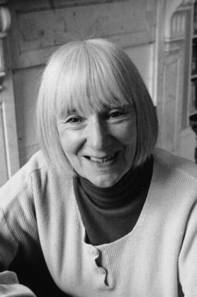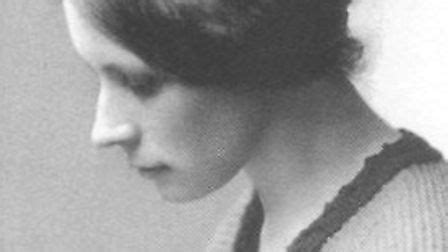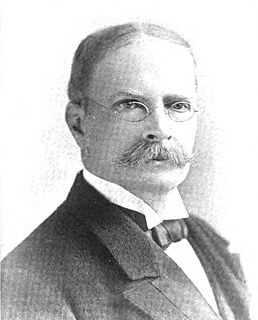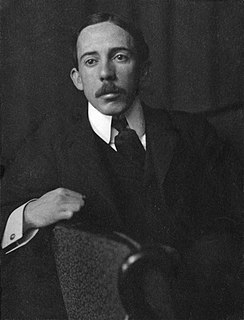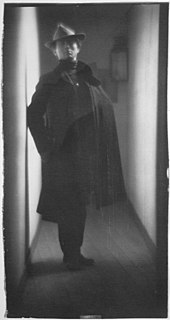Top 144 Meadows Quotes & Sayings - Page 3
Explore popular Meadows quotes.
Last updated on April 15, 2025.
It was a heavenly summer, the summer in which France fell and the British Expeditionary Force was evacuated from Dunkirk. Leaves were never such an intense and iridescent green; sunlight glinted on flower-studded meadows as the Germans encircled the Maginot Line and overran not only France but Belgium and Holland. Birdsong filled the air in the lull between bursts of gunfire and accompanied the fleeing refugees who blocked the roads. It was as though the weather was preparing a glorious requiem for the death of Europe.
In a library, you can find small miracles and truth, and you might find something that will make you laugh so hard that you will get shushed, in the friendliest way. I have found sanctuary in libraries my whole life, and there is sanctuary there now, from the war, from the storms of our families and our own minds. Libraries are like mountains or meadows or creeks: sacred space. So this afternoon, I'll walk to the library.
Flower god, god of the spring, beautiful, bountiful,
Cold-dyed shield in the sky, lover of versicles,
Here I wander in April
Cold, grey-headed; and still to my
Heart, Spring comes with a bound, Spring the deliverer,
Spring, song-leader in woods, chorally resonant;
Spring, flower-planter in meadows,
Child-conductor in willowy
Fields deep dotted with bloom, daisies and crocuses:
Here that child from his heart drinks of eternity:
O child, happy are children!
Wildness and silence disappeared from the countryside, sweetness fell from the air, not because anyone wished them to vanish or fall but because throughways had to floor the meadows with cement to carry the automobiles which advancing technology produced. Tropical beaches turned into high-priced slums where thousand-room hotels elbowed each other for glimpses of once-famous surf not because those who loved the beaches wanted them there but because enormous jets could bring a million tourists every year - and therefore did.
The power, indeed, of every individual is small, and the consequence of his endeavours imperceptible, in a general prospect of the world. Providence has given no man ability to do much, that something might be left for every man to do. The business of life is carried on by a general co-operation; in which the part of any single man can be no more distinguished, than the effect of a particular drop when the meadows are floated by a summer shower: yet every drop increases the inundation, and every hand adds to the happiness or misery of mankind.
Elena had always felt like the center of her own world - who doesn't? The world arranged itself around her like petals around the stem of a flower. This way the meadows, that way the woodland. Over here, the baryn's estate, out there, the hills that hug the known world close and imply a world at beyond. She could never come up with the edge of a world, because it always kept going on beyond. She moved the center of the world as she walked. The world was balanced on her head.
Sweet moonlight, shining full and clear, Why do you light my torture here? How often have you seen me toil, Burning last drops of midnight oil. On books and papers as I read, My friend, your mournful light you shed. If only I could flee this den And walk the mountain-tops again, Through moonlit meadows make my way, In mountain caves with spirits play - Released from learning's musty cell, Your healing dew would make me well!
If you are a Jewish Israeli, you go to Gaza, you get the villa of your life, the villa which you did not dream of ever getting in Israel, a beautiful two-story villa with green meadows and so on, practically for nothing. Then you put up hothouses of tomatoes or flowers; you take the very Arabs from whom you grabbed this land and employ them as laborers in your hothouses. Israeli law does not apply in Gaza: There is no minimum wage, no annual vacation, no compensation for dismissal - so you get the work very, very cheap. It is a wonderful setup economically.
Didn't you tie the mittens on her feet (Wednesday Evening's) extra special nice? Yes--she is an extra special nice pigeon. She cries for pity when she wants pity. And she shuts her eyes when she doesn't want to look at you. And if you look deep in her eyes when her eyes are open you will see lights there exactly like the lights on the pastures and the meadows when the mist is drifting on a Wednesday evening just between the twilight and gloaming.
I had wondered for a long time why God had preferences and why all souls did not receive an equal amount of grace [...] Jesus saw fit to enlighten me about this mystery. He set the book of nature before me and I saw that all the flowers He has created are lovely. The splendor of the rose and whiteness of the lily do not rob the little violet of its scent nor the daisy of its simple charm. I realized that if every tiny flower wanted to be a rose, spring would lose its loveliness and there would be no wild flowers to make the meadows gay.
Candleford Green was but a small village and there were fields and meadows and woods all around it. As soon as Laura crossed the doorstep, she could see some of these. But mere seeing from a distance did not satisfy her; she longed to go alone far into the fields and hear the birds singing, the brooks tinkling, and the wind rustling through the corn, as she had when a child. To smell things and touch things, warm earth and flowers and grasses, and to stand and gaze where no one could see her, drinking it all in.
I respect not his labors, his farm where everything has its price, who would carry the landscape, who would carry his God, to market, if he could get anything for him; who goes to market for his god as it is; on whose farm nothing grows free, whose fields bear no crops, whose meadows no flowers, whose trees no fruits, but dollars.
The longer I live here, the better satisfied I am in having pitched my earthly camp-fire, gypsylike, on the edge of a town, keeping it on one side, and the green fields, lanes, and woods on the other. Each, in turn, is to me as a magnet to the needle. At times the needle of my nature points towards the country. On that side everything is poetry. I wander over field and forest, and through me runs a glad current of feeling that is like a clear brook across the meadows of May. At others the needle veers round, and I go to town--to the massed haunts of the highest animal and cannibal.
Essentially, the scripts are not that different. Let's say, in literary terms, it's the difference between writing horizontally and writing vertically. In live television, you wrote much more vertically. You had to probe people because you didn't have money or sets or any of the physical dimensions that film will allow you. So you generally probed people a little bit more. Film writing is much more horizontal. You can insert anything you want: meadows, battlefields, the Taj Mahal, a cast of thousands. But essentially, writing a story is writing a story.
As I walked in the woods to see the birds and squirrels, so I walked in the village to see the men and boys; instead of the wind among the pines I heard the carts rattle. In one direction from my house there was a colony of muskrats in the river meadows; under the grove of elms and buttonwoods in the other horizon was a village of busy men, as curious to me as if they had been prarie-dogs, each sitting at the mouth of its burrow, or running over to a neighbor's to gossip. I went there frequently to observe their habits.
The Musketaquid, or Grass-ground River, though probably as old as the Nile or Euphrates, did not begin to have a place in civilized history until the fame of its grassy meadows and fish attracted settlers out of England in 1635, when it received the other but kindred name of CONCORD from the first plantation on its banks, which appears to have commenced in a spirit of peace and harmony. It will be Grass-ground River as long as grass grows and water runs here; it will be Concord River only while men lead peacable lives on its banks.
It had nothing to do with gear or footwear or the backpacking fads or philosophies of any particular era or even with getting from point A to point B. It had to do with how it felt to be in the wild. With what it was like to walk for miles with no reason other than to witness the accumulation of trees and meadows, mountains and deserts, streams and rocks, rivers and grasses, sunrises and sunsets. The experience was powerful and fundamental. It seemed to me that it had always felt like this to be a human in the wild, and as long as the wild existed it would always feel this way.
Villages and woods, meadows and chateaux, pass across the moving scene, out of which the whistling of locomotives throws sharp notes. These faint, piercing sounds, together with the yelping and barking of dogs, are the only noises that reach one through the depths of the upper air. The human voice cannot mount up into these boundless solitudes. Human beings look like ants along the white lines that are highways; and the rows of houses look like children's playthings.
Only--but this is rare--
When a beloved hand is laid in ours,
When, jaded with the rush and glare
Of the interminable hours,
Our eyes can in another's eyes read clear,
When our world-deafen'd ear
Is by the tones of a loved voice caress'd--
A bolt is shot back somewhere in our breast,
And a lost pulse of feeling stirs again.
The eye sinks inward, and the heart lies plain,
And what we mean, we say, and what we would, we know.
A man becomes aware of his life's flow,
And hears its winding murmur; and he sees
The meadows where it glides, the sun, the breeze.
The rockets set the bony meadows afire, turned rock to lava, turned wood to charcoal, transmuted water to steam, made sand and silica into green glass which lay like shattered mirrors reflecting the invasion, all about. The rockets came like drums, beating in the night. The rockets came like locusts, swarming and settling in blooms of rosy smoke.
Roads go ever ever on, Over rock and under tree, By caves where never sun has shone, By streams that never find the sea; Over snow by winter sown, And through the merry flowers of June, Over grass and over stone, And under mountains of the moon. Roads go ever ever on Under cloud and under star, Yet feet that wandering have gone Turn at last to home afar. Eyes that fire and sword have seen And horror in the halls of stone Look at last on meadows green And trees and hills they long have known
Some day there may be... machinery that needs but to be wound up and sent roaming o'er hill and dale, through fields and meadows, by babbling brooks and shady woods - in short, a machine that will discriminately select its subject and, by means of a skillful arrangement of springs and screws, compose its motif, expose the plate, develop, print, and even mount and frame the result of its excursion, so that there will be nothing for us to do but to send it to the Royal Photographic Society's exhibition and gratefully to receive the 'Royal Medal'.
It's so silly isn't it? how we grown men take up trout angling not simply to pursue trout but to find some place, some special place, where we feel at ease. a place to belong. Forces, not forms, persist: energy is spent and endures; time does not tick, it flows. God loves a man that smells of trout water and mountain meadows. Which way's heaven, you suppose? Follow the trail and keep close to the stream.
You are worried about what man has done and is doing to this magical planet that God gave us. And I share your concern. What is a conservative after all but one who conserves, one who is committed to protecting and holding close the things by which we live...And we want to protect and conserve the land on which we live - our countryside, our rivers and mountains, our plains and meadows and forests. This is our patrimony. This is what we leave to our children. And our great moral responsibility is to leave it to them either as we found it or better than we found it.
